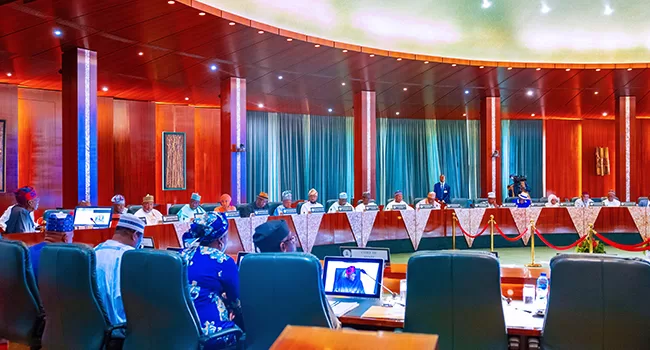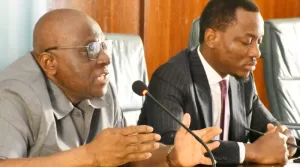The Federal Executive Council has announced a proposed amendment to the National Identity Management Commission Act No. 23, 2007, which would allow foreigners residing in the country to obtain a National Identification Number (NIN).
Onanuga said this while briefing State House correspondents on Wednesday in Abuja. Under the proposed amendment to the National Identity Management Commission (NIMC) Bill, 2024, the government seeks to broaden the tax base and improve revenue collection by formally including foreigners in the identification system.
He said the proposed NIMC bill was part of the Economic Stabilisation Bills approved by the Federal Executive Council (FEC) on Monday, soon to be forwarded to the National Assembly for consideration.
“This bill will amend the law that was made some years ago, and it now provides, if the National Assembly passes that bill, that everybody living in Nigeria, foreigners, all of them will now be registered and be given tax identity.
“Once you are doing some work here and you are earning income, you will be registered and given tax identity and you will be taxed, and you come under our tax structure.
“The law that was set up initially precluded foreigners from being registered, and so they were not taxed,” said Onanuga.
The two proposed legislation are aimed to “expand the scope of registrable persons to include foreign individuals with the taxable presence or taxable source of income in Nigeria, and make provisions for the mandatory use of National Identification Number for transactions which are relevant for tax administration, and for related matters.”
The government proposes a new paragraph to Section 16, which reads, “Any person, whether or not he is a citizen of Nigeria, who is deemed to be resident or otherwise subject to tax in Nigeria under any legislation in force in Nigeria.”
If passed into law, the new bill would see expatriates and income-earning immigrants being taxed.
The Special Adviser to the President on Information and Strategy, Mr. Bayo Onanuga, revealed this while briefing State House Correspondents at the Aso Rock Villa, Abuja, on Wednesday.
Onanuga explained that, “If the National Assembly passes that bill, it provides that everybody living in Nigeria, including foreigners, will now be registered and given NIN
“Once you are doing some work here and earning income, you will be registered and given an NIN so that you can be taxed.
READ ALSO: FIRS Unveils e-Invoice Initiative to Enhance Tax System
“Your NIN will give you your tax identity, and you can also be taxed and come under our tax structure. The law that set up the NIMC initially precludes foreigners from being registered.”
The presidential aide announced a third bill seeking to amend the Nigerian Maritime Administration and Safety Agency Act No.17, 2007, to “provide for the payment of fees and other charges in naira to improve the ease of doing business and for related matters.”
“Now, amendments are also proposed so that all their fees, charges, levies, and fines accruing to them will now be paid in Naira at the applicable exchange rate.
Onanuga explained, “Hitherto, these agencies were charging in dollars, but now with the proposed billthey can always collect it in Naira. This government wants to put a lot of emphasis on our national currency instead of everything being dollarised in our economy. The government is now saying, ‘pay in Naira. Everything doesn’t have to be in dollars.’”
According to him, another bill, which is a component of the Economic Stabilisation Bills, is the Tertiary Education Trust Fund Amendment Bill 2024, an element of the Nigerian Education Loan Fund.
“Some people may have been wondering, how are we going to fund the loans we are giving to Nigerian students? Well, I think the government has provided an answer.
“Most of the funding will also come from the money going to the Tertiary Education Trust Fund,” he said.
He said an amendment had been proposed to the Tertiary Education Trust Fund Act, which stipulated that before disbursement of the amount in the fund, 30 per cent would be transferred to the Nigerian Education Loan Fund.
He said that would provide a ready-made source of funding for the Nigerian Student Loan Fund.
The News Agency of Nigeria (NAN) reports that FEC approved the Economic Stabilisation Bills, which proposed specific measures, draft laws, and policies aimed at improving the overall economic environment.
The Economic Stabilisation Bills also include proposals for the amendment of the Foreign Exchange Act, Companies Income Tax Act and Fiscal Responsibility Act.


